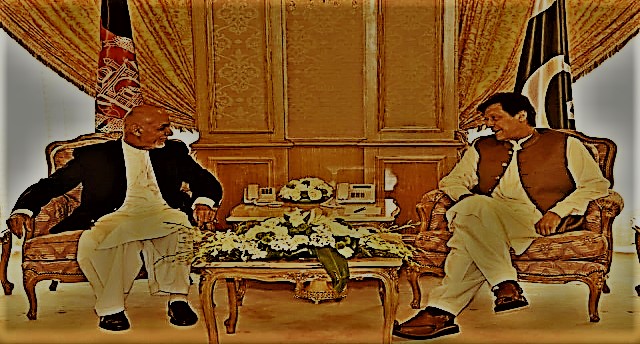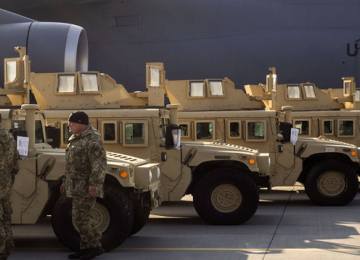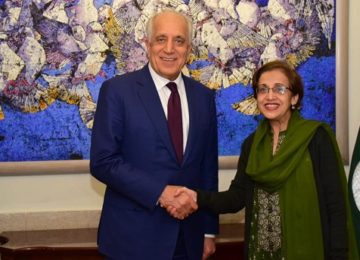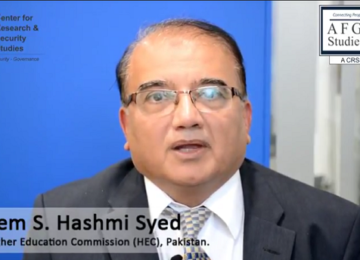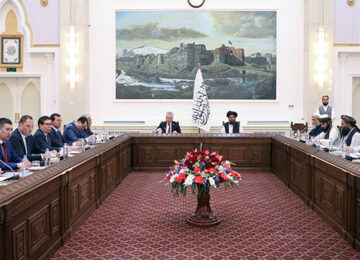June 26, 2019
Following on the heels of Afghanistan’s deputy Foreign Minister Idrees Zaman’s parleys with his counterparts on June 11, President Ashraf Ghani’s visit to Islamabad on June 27 (Thursday) is yet another bilateral confidence building measure (CBM). It is likely to generate another wave of optimism to the context of continued scepticism and criticism, at times loaded with acrimonious innuendoes.
As a whole, Ghani’s decision to break through the walls of rancour and suspicion is an extremely welcome step. It will hopefully reset the relationship to the benefit of both nations.
Quite a significant move forward because it underlines four important ground realities!
a) Both Pakistan and Afghanistan are finally engaging despite intransigence of some key Afghan stakeholders since 22 July, 2018, when the first meeting of the Afghanistan-Pakistan Action Plan for Peace and Solidarity (APAPPS) took place in Kabul.
APAPPS had for the first time elicited an understanding by Afghan leaders and officials to engage with Pakistan – independent of what happens within Afghanistan among all Afghan stakeholders including the Taliban or the violence by the latter.
Unfortunately, elements within the National Unity Government (NUG) literally stalled the APAPPS process, rendering it hostage to what looked like their personal whims, reflecting an adverting denial of the need to repair relations with Pakistan.
b) With President Ghani opting to defy all odds around him in favour of a hop over to Islamabad, it seems, the Afghan government now realises and accepts the criticality of relations with Pakistan. The latter’s geographical proximity also lends Islamabad an unavoidable centrality in the Afghan peace process. It also signals the readiness to try addressing and resolving lingering bilateral issues (such as trade, refugees, terrorism, border management).
c) The Ghani visit augurs really well for the NUG because – with another round of the US-Taliban talks in Doha being around the corner – because any agreements and understanding on the way forward will only add to the weight of the Ghani government and make it ever relevant to the impending peace deal and its eventual effective implementation.
d) Following the mutual acceptance of APAPPS last year, as well as its endorsement by key external players such as the US, China, Russia and Turkey, it had become evident that this mechanism comprising five working groups (on political dialogue, security cooperation, trade, refugees,) will now guide future relations. That is why Pakistan, it seems, kept insisting that both Kabul and Islamabad stick to the APAPPS spirit and invest in it as an established institutional mechanism.
The next APAPPS review session will likely be held at Kabul in December. If all goes well, without any major controversy, and as long as the Afghan media as well as Pakistan-detractors in Kabul take it with a sense of renewed realism, the Ghani visit may create more conducive space for bilateral engagement on major contentious issues and hence be helpful in providing succour to millions of people on both sides of the border.
So, welcome President Ghani to Pakistan.
The author Imtiaz Gul is the Executive Director of the Center for Research and Security Studies (CRSS) and Afghan Studies Center (ASC).
By Special Arrangement with Matrix Mag.



